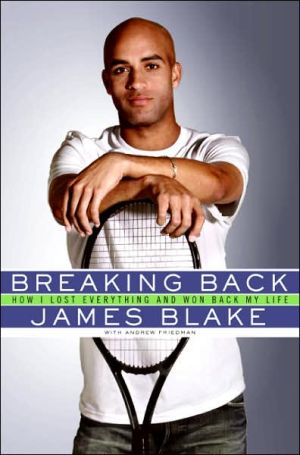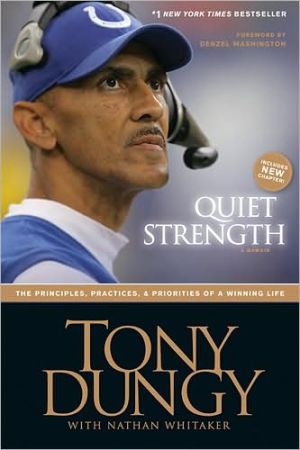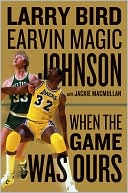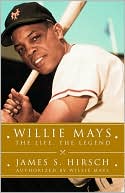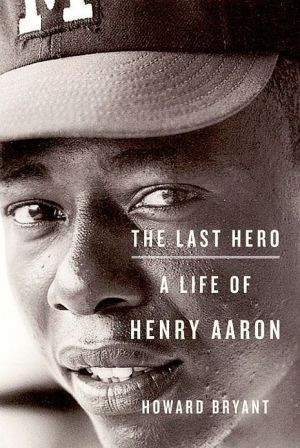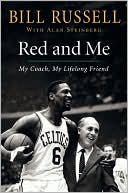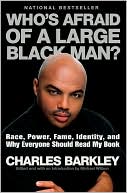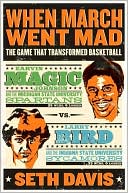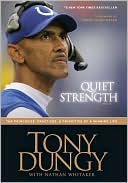Breaking Back: How I Lost Everything and Won Back My Life
In 2004, James Blake's life was getting more perfect by the day. A rising tennis star, with each passing year his game seemed to improve. In 2002, he was named Sexiest Male Athlete by People, and along the way he continued to gain in the rankings and earn respect on the court. Each day seemed to offer a new milestone, a new achievement; he was leading a charmed life and loving every minute of the ride.\ But that life came to an abrupt halt in May 2004 when Blake broke his back in a freak...
Search in google:
James Blake's life was getting better every day. A rising tennis star and People magazine's Sexiest Male Athlete of 2002, he was leading a charmed life and loving every minute of it. But all that ended in May 2004, when Blake fractured his neck in an on-court freak accident. As he recovered, his father—who had been the inspiration for his tennis career—lost his battle with stomach cancer. Shortly after his father's death, Blake was dealt a third blow when he contracted zoster, a rare virus that paralyzed half of his face and threatened to end his already jeopardized career. In Breaking Back, Blake provides a remarkable account of how he came back from this terrible heartbreak and self-doubt to become one of the top tennis players in the world. A story of strength, passion, courage, and the unbreakable bonds between a father and son, Breaking Back is a celebration of one extraordinary athlete's indomitable spirit and his inspiring ability to find hope in the bleakest of times.Publishers WeeklyTennis champion Blake, who has appeared on Oprahand The Tonight Show, shares his string of hard-won successes both on the court and in his personal health. A child of a black father and white British mother in Fairfield, Conn., Blake hooked into serious tennis playing by age 11, when he was paired with coach Brian Barker, who remained his gentle mentor for the duration of his career. Having turned professional by his sophomore year of college at Harvard in 1991, Blake had mixed success on the pro circuit for the first few years. Sustaining confidence seemed to be Blake's biggest challenge, as he struggled to follow the advice of his father, Tom, who was fighting a losing battle with stomach cancer: "You can't control your level of talent, but you can control your level of effort." At age 23, he decided to shave his trademark dreadlocks. Soon after, he ran into a steel net post during a practice game in Rome, fracturing his neck vertebrae. Blake was later diagnosed with paralyzing zoster, or shingles. His memoir is an inspirational account of overcoming the odds to return to competitive playing by 2004. (Aug.)Copyright 2007 Reed Business Information
Breaking Back\ How I Lost Everything and Won Back My Life \ \ By James Blake \ HarperCollins\ Copyright © 2007 James Blake\ All right reserved.\ ISBN: 978-0-06-134349-0 \ \ \ \ Chapter One\ The Statement December 2003 \ Even if you are on the right track, you will get run over if you just sit there. -Will Rogers\ For professional tennis players, December is an annual abyss.\ The year's competition is done, and everyone on the Association of Tennis Professionals (ATP) tour scatters around the planet to relax for the only month of our sport's notoriously stingy off-season. Come January, those of us who aren't nursing injuries will flock to Australia, or one of a handful of other destinations, for the first tournaments of the New Year. From there, we will continue to travel and play on and off for the better part of the next eleven months.\ Success in professional sports is a funny thing. You might say that pro athletes live with three certainties looming over them: Death, taxes, and retirement. In the back of your mind, you know that no matter how good you are, what you've got is either fleeting or finite-at some point it's going to end, either by choice or because your body will simply give out.\ So, much as we welcome our downtime in December, we must also contend with the what-ifs that it brings: What ifI just had the best year I'm capable of? What if this slump I'm in isn't really a slump? What if it's the beginning of the long, slow slide to oblivion? Even the best player in the world faces his own versions of this question: what if this was my last year of being number one? What if that new teenager everyone's buzzing about is even better than I am? What if I get injured next year and it all comes screeching to a halt?\ For most players, these are the questions that come up every December, but for me, December 2003 was the first year that I really found myself asking them. In 1999, I left college after my sophomore year to become a professional tennis player, but it took me a few Decembers before I really came to understand the abyss that the month presents. Like many young athletes, I was having too much fun for such weighty introspection. The ATP tour is like a kind of traveling neverland, where no one forces you to grow up. So a lot of the guys are indistinguishable from overgrown adolescents-when not hitting tennis balls, or the gym, we spend our time hanging out, playing poker, watching television, mastering video games, instant messaging each other, perfecting iPod playlists, and planning the occasional practical joke.\ Don't get me wrong, staying fit and honing your game are hard work, and if you do them right, they consume several hours a day. In addition, there are the other commitments-interviews, photo shoots, personal appearances, and promoting whatever tournament you find yourself in on any given week. But when you stack it up against most other "jobs," life out on the tour is basically a dream, in more ways than one. It's a dream come true, because most of us grew up idolizing professional athletes and can hardly believe we've become one ourselves, and the higher you climb, the more surreal it gets. People recognize you on the street; designers throw clothes at you on the off chance that a reporter might mention it in print; hordes of children line up outside your practice court to have you autograph tennis balls, rackets, hats, or even body parts when nothing else is available; and you spend a ridiculous amount of time on airplanes, literally living among the clouds.\ In some ways, I think that the experience has been stranger for me than it has for most of my peers because I was never supposed to make my living as a jock. If most adolescent athletes have "sports parents," then I had "school parents"-a mother and father who revered education above everything else and treated it as a lifelong pursuit, not just something to occupy you until age twenty-one. On a daily basis, they demonstrated their commitment to learning by using themselves as examples. My mother, Betty, is a voracious reader and occasional writer, while my father, Tom, continued to enhance his communication skills well into his fifties by reading and by taking a vocabularybuilding class.\ Early on, my parents had to endure some social hardships as a mixed-race couple. My father was black and my mother white, and it wasn't always easy. One night, early in their courtship, they were dining at a restaurant and my father caught another man staring at them. "I have nice teeth, too," my father said, grinning broadly at the guy. It was a private joke between him and my mom, a reference to the way plantation owners looking to purchase a slave would sometimes ask to see his teeth. The man probably didn't understand, but my mother still laughs, a little sadly, when she recounts the story.\ Despite incidents like that, my parents always maintained their belief in the essential decency of people, and they passed this faith on to me and my older brother, Thomas Jr. When I was a junior player, another kid told me he felt sorry for me because of my genealogy, predicting that I'd be hated by blacks and whites. I told my mother about what he said, and she replied that she didn't see why I wouldn't be loved by both communities, an outcome that hadn't even occurred to me before she mentioned it. And fortunately for me, what she predicted is exactly what came to pass.\ Optimism of that kind was infectious, and the constant support of my parents helped me to persevere through the awkward and often ignorant comments of some of the people around me. While my interracial heritage may seem to be a tailor-made story of adversity, the adversity never really materialized in many ways because I never allowed it to overtake my worldview. My parents' inclination toward truly loving life and expecting the best from it shaped my entire outlook, helping me to believe in the inherent goodness of other people and keeping me from being sucked down into the darkness that sometimes overshadows the joy of living.\ (Continues...)\ \ \ \ \ Excerpted from Breaking Back by James Blake Copyright © 2007 by James Blake. Excerpted by permission.\ All rights reserved. No part of this excerpt may be reproduced or reprinted without permission in writing from the publisher.\ Excerpts are provided by Dial-A-Book Inc. solely for the personal use of visitors to this web site. \ \
Author's note ixPrologue 1The Statement 7It Could Be Worse; It Could Be Raining 35Requiem for a Superman 63Five Minutes of Hitting, Twenty-Five Minutes of Talking 115Plan B 147If You Can Win One Set, You Can Win Two 175Fire It Up One Time ... Bam! 203Getting Better 241Epilogue 257Glossary 265Acknowledgments 269
\ From Barnes & NobleFor American tennis star James Blake, 2004 was 12 months of unremitting nightmare. While practicing in Rome for the Masters, the Yonkers-born player ran full speed into a net post, breaking his neck. Two months later, his father, the inspiration of his life, died of stomach cancer. Soon after that family tragedy, Blake contracted herpes zoster, a virus that paralyzed half his face and blurred his vision. Veterans on the tennis circuit talked in hushed tones about the end of a promising career. They were not alone: After these devastating events, Blake himself doubted that he could ever return to the game he loved. Somehow, actually drawing on the memory of his father, he not only retrieved his racket; he played as he had never played before, advancing from a world ranking of 210th to 49th. Breaking Back recounts one of the greatest tennis comebacks of all time.\ \ \ \ \ Andre Agassi"The grace and dignity that James has shown during some very difficult times has been a source of great inspiration."\ \ \ Anna Wintour"Blake is a champion—in every sense of the word."\ \ \ \ \ John Mayer"I’ve known James since early childhood...James’s rise to international success is as stunning as it was predictable."\ \ \ \ \ Jeanne Moutoussamy-Ashe"Through Blake’s commitment and passion, he tells the story of the life lessons he learned while facing difficult personal challenges."\ \ \ \ \ Former President"[James Blake] has inspired young people everywhere with his story of courage and determination."\ \ \ \ \ Publishers WeeklyTennis champion Blake, who has appeared on Oprahand The Tonight Show, shares his string of hard-won successes both on the court and in his personal health. A child of a black father and white British mother in Fairfield, Conn., Blake hooked into serious tennis playing by age 11, when he was paired with coach Brian Barker, who remained his gentle mentor for the duration of his career. Having turned professional by his sophomore year of college at Harvard in 1991, Blake had mixed success on the pro circuit for the first few years. Sustaining confidence seemed to be Blake's biggest challenge, as he struggled to follow the advice of his father, Tom, who was fighting a losing battle with stomach cancer: "You can't control your level of talent, but you can control your level of effort." At age 23, he decided to shave his trademark dreadlocks. Soon after, he ran into a steel net post during a practice game in Rome, fracturing his neck vertebrae. Blake was later diagnosed with paralyzing zoster, or shingles. His memoir is an inspirational account of overcoming the odds to return to competitive playing by 2004. (Aug.)\ Copyright 2007 Reed Business Information\ \
